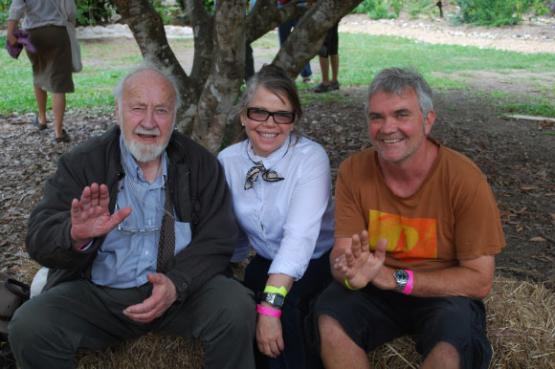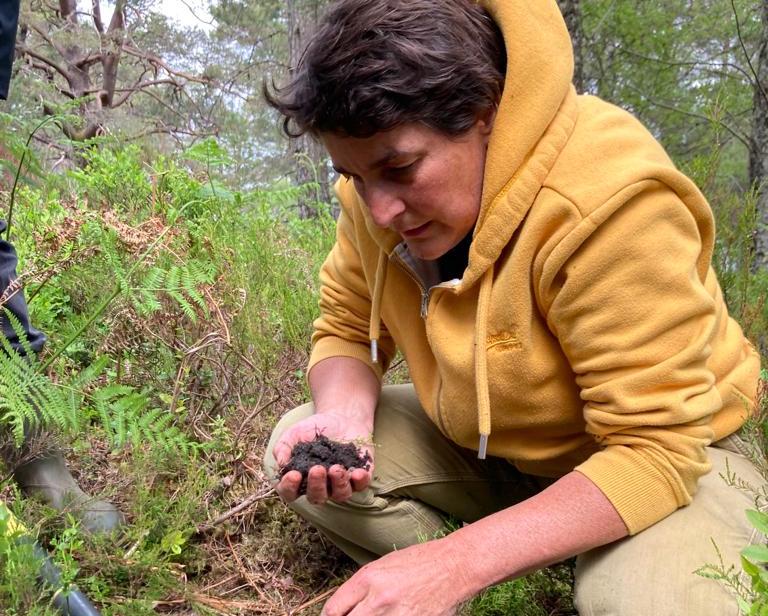
BBC World Service - The Understory: Life in the Soil
8 min read
Isabelle Legeron MW is hosting a 4-part audio series called The Understory: Life in the Soil as part of the BBC World Service's radio programme The Compass. The first episode was broadcast on Wednesday 7th September which you can listen to now, with the remaining episodes going live weekly.
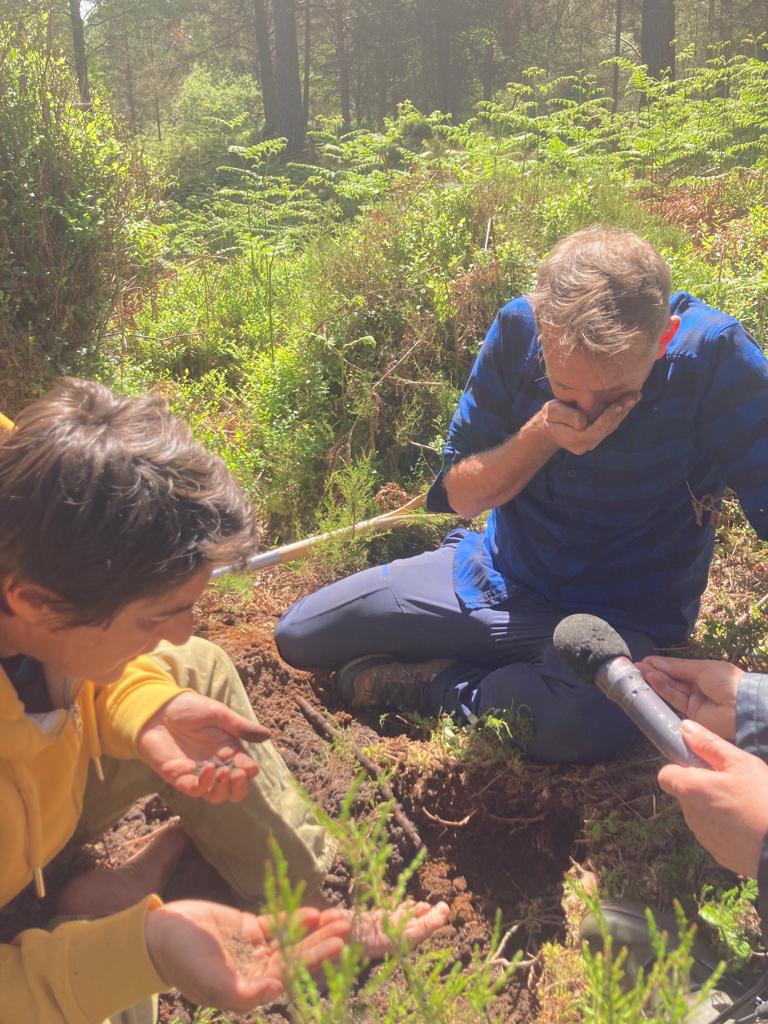
The series is an opportunity to get to know soil and the complexities of the mass that lives beneath us and, for the most part, we overlook. Isabelle explores our understanding of soil, the challenges we face and how the earth we share can provide each of us with a powerful sense of identity.
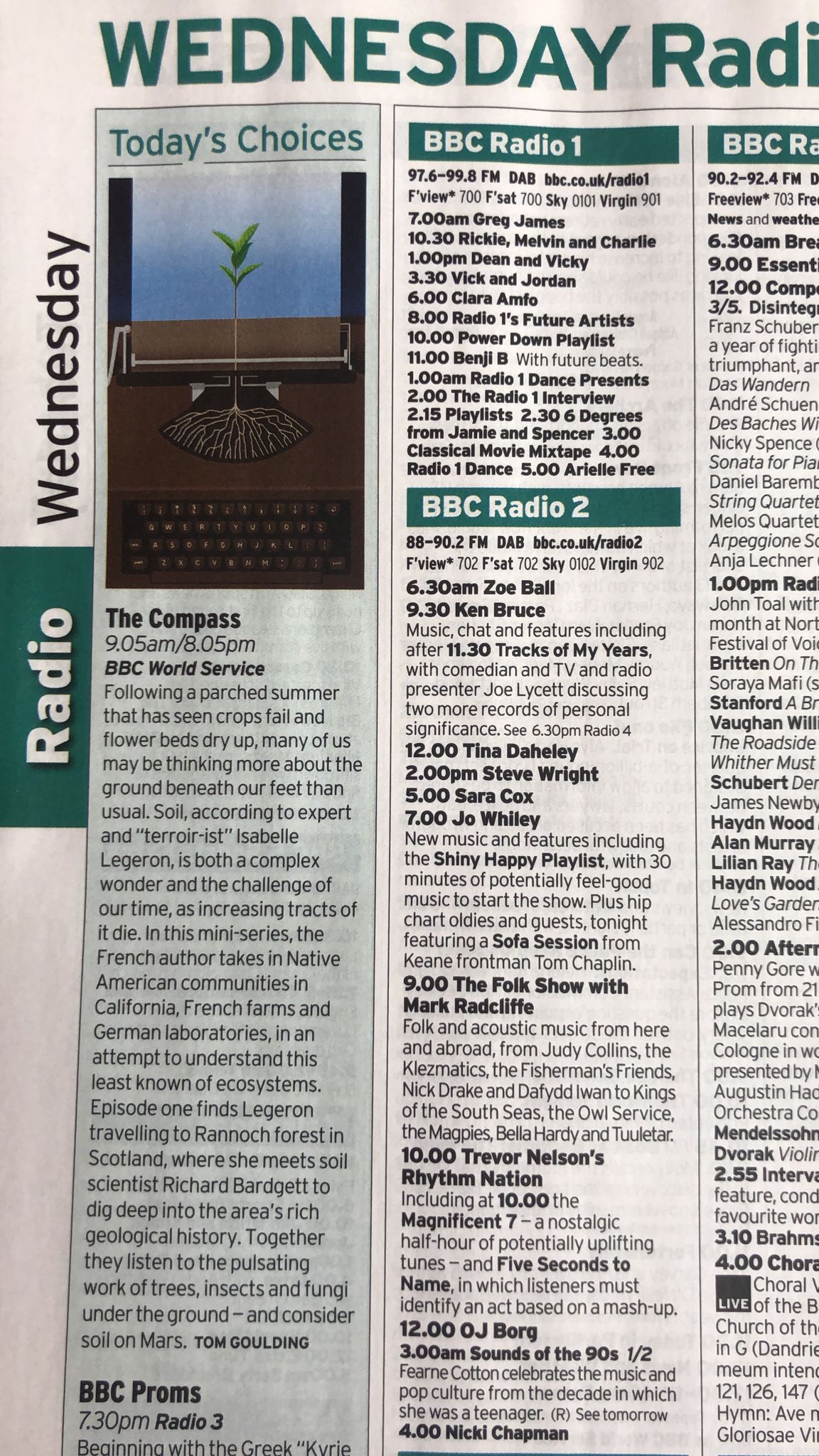
Producer: Kate Bland
A Cast Iron Radio production for the BBC World Service
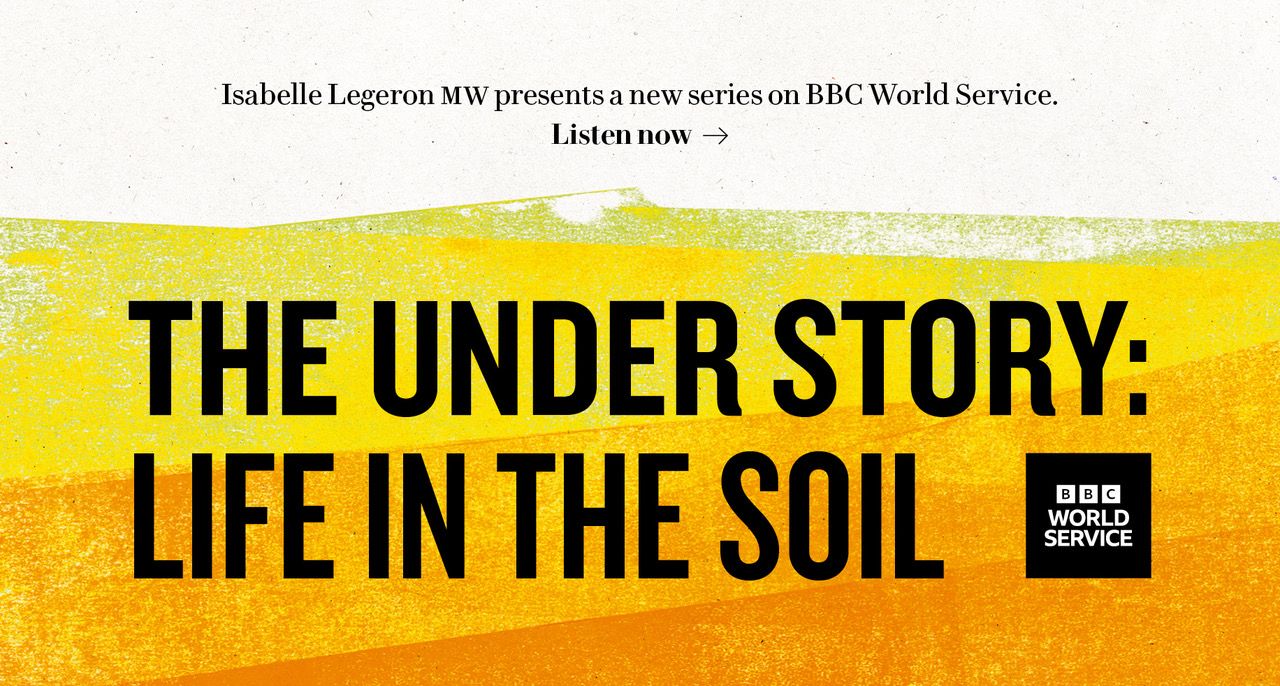
Joining Isabelle on The Under Story are special guest speakers and experts in their field Anne Biklé, Tony Juniper, David Montgomery, Professor Suzanne Simard and Hans-Peter Schmidt. Below, you'll find Isabelle's extended interviews with these guests and further resources to continue your learning, including talks, interviews and suggested reading, most of which we collected during our first ever virtual festival, RAW WINE Alive! which was held in December 2021. The two-day series of thought-provoking talks and tastings explored the remarkable, interconnected natural world and its impact on the living in wine. All talks are now available to stream for free and can be explored here.
In particular, there were some fascinating conversations on our relationship with soil and the role it plays not just in farming and winemaking, but in our connection with the earth. Here's a selection for you to check out. Enjoy!
ANNE BIKLÉ
Biologist, Avid Gardener & Author
Anne Biklé is a science writer and public speaker focusing on the connections between people, plants, food, health, and the environment. A bad case of plant lust draws her to the garden where she coaxes garden plants into rambunctious growth or nurses them back from the edge of death with her regenerative gardening practices.
She co-authored The Hidden Half of Nature: The Microbial Roots of Life and Health with her husband, geologist David Montgomery. From garden to gut, the book combines memoir, science, and history to tell the story of humanity’s tangled relationship with the microbial world through the lens of agriculture and medicine. Their latest collaboration, What Your Food Ate, explores connections between soil health and human health.
Her work has appeared in magazines, newspapers, and radio and her soil-building gardening practices have been featured in independent and documentary films.
Listen to Anne's extended interview below.
Extended Interview
Talk at Alive! - The Hidden Half of Nature, Inside and Out
Agricultural practices profoundly influence levels of the nutrients, phytochemicals and other compounds in crops and livestock. When we feed the grand symbiotic partnership between the botanical world and the soil microbiome, it ripples through to the human diet providing taste receptors, complex flavours, nourishment for our gut and more. Watch Anne's talk and if you'd like to explore her work further, check out her books The Hidden Half of Nature and What Your Food Ate.
TONY JUNIPER
CBE Environmentalist, Author & Chair of Natural England
Tony Juniper CBE is a renowned keynote speaker, campaigner, writer and commentator, and one of the UK’s best-known environmentalists.
For more than 35 years Tony has spent his time seeking change toward a more sustainable society at local, national and international levels. From leading major organisations to orchestrating high-impact campaigns, and from publishing influential books to working as an ecological scientist, he has worked in a wide diversity of roles.
Today he is Chair of the official nature conservation agency Natural England. Before taking up this role in April 2019 he was the Executive Director for Advocacy and Campaigns at WWF-UK, a Fellow with the University of Cambridge Institute for Sustainability Leadership (a role that he retains) and President of the Wildlife Trusts. Until January 2018 he was an independent sustainability and environment advisor, including as Special Advisor with The Prince of Wales's International Sustainability Unit.
Juniper speaks and writes widely on conservation and sustainability themes and is the author of many books, including the multi-award-winning bestseller ‘What has Nature ever done for us?’, published in 2013. The Ladybird guide to climate change, co-authored with HRH The Prince of Wales and Emily Shuckburgh, was published in January 2017. His latest book, ‘Rainforest‘, was published in April 2018.
Listen to Tony's extended interview below.
Extended Interview
Talk at Alive! - What has Nature ever done for us?
For too long many have regarded a healthy environment as nice to have, with the loss of wildlife, damage to ecosystems and pollution as regrettable but inevitable, and the price we must pay for progress. Modern science tells us, however, that this is a dangerous misconception, with damage to the biosphere and atmosphere now reaching the point where our entire social and economic systems are at risk. Nature supports our wellbeing at every turn, and protecting the natural systems that do all this and much more is now a top global priority. Watch Tony's talk and take a look at his books for further learning: What has Nature ever done for us?, The Ladybird guide to climate change and Rainforest.
DAVID MONTGOMERY
Director of The Geomorphology Research Group at the Quaternary Research Center & Department of Earth and Space Sciences, University of Washington
David R. Montgomery is a MacArthur Fellow and professor of geomorphology at the University of Washington. He is an internationally recognized geologist who studies the effects of geological processes on ecological systems and human societies. His work has been featured in documentary films, network and cable news, and on a wide variety of TV and radio programs, including NOVA, PBS NewsHour, Fox and Friends, and All Things Considered.
David is also the author of several popular books including Dirt: The Erosion of Civilizations and Growing a Revolution: Bringing Our Soil Back to Life.
Listen to David's extended interview below.
Extended Interview
Talk at Alive! - Growing a Revolution to Reverse the Erosion of Civilizations
Soil may be the least sexy resource upon which civilization depends yet soil erosion and degradation have plagued societies throughout history. From Classical Greece and Rome to the Dust Bowl, societies that degraded their soil did not last. Today, an unfolding soil health revolution transcends debates about conventional and organic farming in emphasizing the role of healthy, life-filled soil in crop health, the nutrient density of food, and the phytochemical content of crops. On farms in both the industrialized and developing worlds improving soil health through the adoption of three transformational farming practices—minimizing soil disturbance, planting cover crops, and growing diverse crop rotations—can rapidly and profitably rebuild the fertility of the soil and reduce dependence on fossil fuels and agrochemicals. Combining ancient wisdom with modern science, regenerative practices good for farmers and the environment translate into farms that use less water, generate less pollution, lower carbon emissions—and stash carbon underground. While crop rotation is obviously not central to viticulture, the way soil between vines is treated greatly affects soil health and has implications for vine health and the phytochemical content of crops (e.g., phenolics) due to effects on soil life and their symbiotic relationships with plants. Watch David's talk and continue your learning with his books Dirt: The Erosion of Civilizations and Growing a Revolution: Bringing Our Soil Back to Life.
PROF. SUZANNE SIMARD
Professor of Forest Ecology, University of British Columbia, & Author
Suzanne Simard is a Professor of Forest Ecology at the University of British Columbia and the author of the book, Finding the Mother Tree.
She is a pioneer on the frontier of plant communication and intelligence; and has been hailed as a scientist who conveys complex, technical ideas in a way that is dazzling and profound. Her work has influenced filmmakers (the Tree of Souls in James Cameron’s Avatar) and her TED talks have been viewed by more than 10 million people worldwide.
Suzanne is known for her work on how trees interact and communicate using below-ground fungal networks, which has led to the recognition that forests have hub trees, or Mother Trees, which are large, highly connected trees that play an important role in the flow of information and resources in a forest. Her current research investigates how these complex relationships contribute to forest resiliency, adaptability and recovery and has far-reaching implications for how to manage and heal forests from human impacts, including climate change.
Suzanne has published over 200 peer-reviewed articles and presented at conferences around the world. She has communicated her work to a wide audience through interviews, documentary films and her TEDTalk How trees talk to each other.
Listen to Suzanne's extended interview below.
Extended Interview
Talk at Alive! - Finding the Mother Tree
Based on her incredible book and her research at The Mother Tree Project, Dr. Suzanne Simard shares her moving and deeply personal journey of discovering the interconnectedness of trees, explaining how they behave in many ways with characteristics ascribed to human intelligence and civil societies. Watch now and for more, read Suzanne's book and watch her TEDTalk.
HANS-PETER SCHMIDT
Director of the Delinat-Institut for Ecology and Climate Farming, Chair of Biochar Science Network Switzerland, Board Member for the European Biochar Foundation and Editor of the Ithaka Journal for Ecology and Viticulture
Hans-Peter Schmidt is director of the Delinat-Institut for Ecology and Climate Farming in Valais (Switzerland). He studied Visual Communication and Philosophy in Hamburg; then years of travelling and working as journalist and translator followed. Since 2003, he occupied different teaching positions at Goethe-Institute in Brussels, College of St. Maurice and University Bern.
After extended studies on the influence of Ecology for the cultural rise and fall of the Ancient Orient, he decided to explore the archaeology of experience and founded together with his wife the experimental wine garden Mythopia in Valais. In 2009, Mythopia became the research centre of the new founded Delinat Institute.
With his institute he develops concepts for the remediation of agronomic ecosystems, the improvement of cityscapes through biodiversity and carbon sequestration. He works on the integration of renewable energy production into landscape and is consultant to the WWF for renewable energy and nutrient cycles.
Rapidly, the Delinat Institute became one of the leading research centres for the use of biochar and is consultant to more than 100 European vineyards that follow its ecological guidelines and certification scheme. Hans-Peter Schmidt chairs the Biochar Science Network Switzerland and is Board Member of the European Biochar Foundation. He is editor of the Ithaka Journal for Ecology and Viticulture.
Listen to Hans-Peter's extended interview below.
Extended Interview
There are lots more RAW WINE Alive! talks on soil, and the organisms on and within it, that are worth listening to - including, amongst others, the award-winning author and mycologist Merlin Sheldrake talking about fungi; the pioneering plant neurobiologist Professor Elizabeth Van Volkenburgh and Professor of Philosophy of Science Dr Paco Calvo talking about the groundbreaking study of the intelligence of plants; and the award-winning journalist and science author Dr Alessandra Viola explaining why plants deserve rights too. You can explore the full collection of talks for free here.
Have any questions? We'll do our best to answer them - just message us at @rawwineworld on Instagram or Tweet us at @rawwine.

